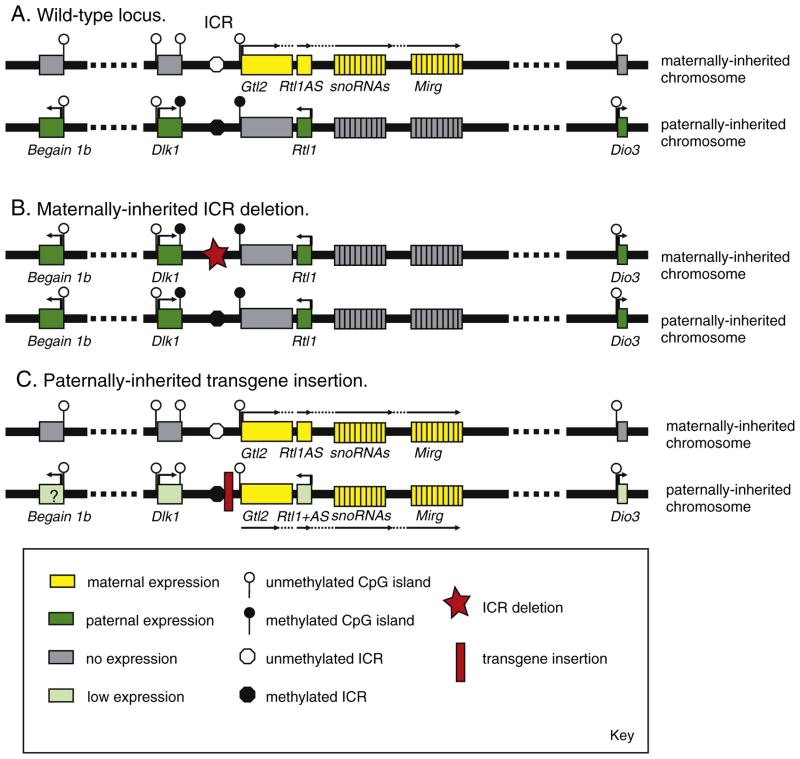Fig. 2.
The mouse chromosome 12 imprinted cluster. A, The wild type locus. The Dlk1-Dio3 imprinted domain is shown (1.5 Mb, not to scale) on the two parental chromosomes. Following maternal transmission (top) there is expression of a long non-coding RNA (yellow) containing transcripts for Gtl2, Rtl1AS, snoRNAs and Mirg. This transcript arises from a non-methylated Gtl2 promoter (open lollipop), which is in cis to an unmethylated ICR (white circle). On the same chromosome Begain 1b, Dlk1, Rtl1 and Dio3 are not expressed (gray boxes). On the paternally-inherited chromosome (bottom) the ncRNAs are silent (gray boxes) in cis to a methylated Gtl2 promoter and ICR. The protein-encoding Begain 1b, Dlk1, Rtl1 and Dio3 genes are all expressed from this chromosome (green boxes). Dlk1 and Dio3 are driven by unmethylated CpG island promoters (open lollipops at start of genes) on both parental chromosomes, and there is an additional region of methylation in exon 5 of Dlk1 which is hypermethylated on the paternally-inherited chromosome. B, The maternally inherited ICR deletion. When a deletion of the ICR (red star) is transmitted through the female germline there is an epigenotype switch on this chromosome such that it resembles the paternally-inherited chromosome. The gtl2 promoter becomes methylated, the ncRNAs are silenced, and the protein encoding genes are reactivated in cis to the deletion. The paternally-inherited chromosome is unaffected by the deletion. C, Paternally-inherited transgene insertion. When a transgene insertion between the ICR and Gtl2 promoter (red box) is inherited of the paternal chromosome the Gtl2 promoter fails to become methylated in cis. This results in activation of the (normally silenced) ncRNAs and partial silencing of the protein-encoding genes.

